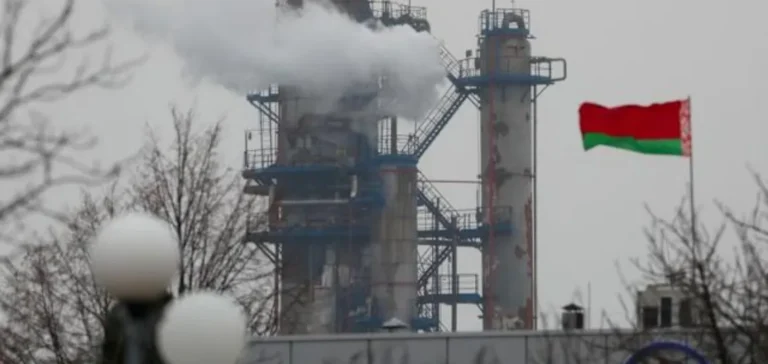Gasoline exports transported by rail from Belarus to Russia quadrupled in September, according to industry sources. The increase comes amid growing pressure on the Russian domestic market, marked by fuel shortages and temporary price freezes in several regions. Drone strikes targeting refineries and other energy installations have deepened the supply imbalance.
A surge driven by Russia’s fuel shortage
In response, Moscow has stepped up imports from Belarus to stabilise its supply. Rail deliveries of gasoline reached 49,000 metric tons, or about 14,500 barrels per day, in September. Diesel deliveries totalled 33,000 tons over the same period. These volumes partially offset reduced output from Russian refineries, some of which curtailed operations following the attacks.
Strengthened energy cooperation between Minsk and Moscow
The two countries have maintained close collaboration in oil logistics for several years. Since March 2021, Belarus has shipped part of its refined petroleum products through Russian ports under a bilateral cooperation agreement. In September, gasoline transit via Belarus for export through Russian ports rose slightly by 1 % to 140,000 tons. However, during the first nine months of the year, total transshipments fell by nearly 40 % year-on-year to 1.17 million tons, due to lower refining throughput.
Limited but strategic capacity of Belarusian refineries
The country’s two main facilities, the Naftan and Mozyr oil refineries, each have an annual capacity of 12 million tons, equivalent to around 240,000 barrels per day. In practice, they produce about 9 million tons annually, or roughly 180,000 barrels per day. These sites remain a key component of the regional energy framework, supplying both the domestic Belarusian market and a growing share of Russia’s needs during times of shortage.
Industry participants view this increase in cross-border trade as an emergency measure, underscoring Moscow’s growing reliance on regional partners to maintain domestic fuel stability.






















